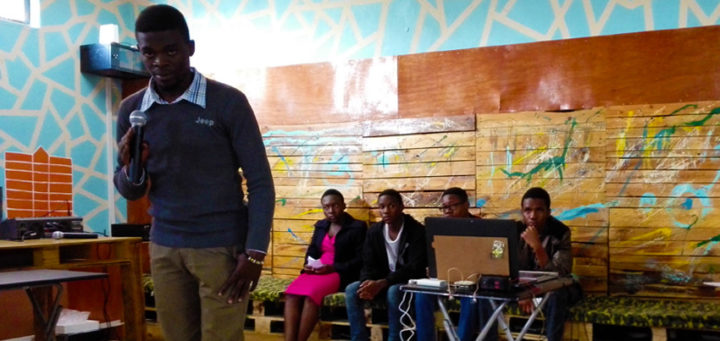Is Malawi ready to develop Internet of Things (IoT) solutions that tackle current and future food security, energy, transport and health issues? Well, that was a challenge the We for Talent Hackathon set out to address.
Local tech incubator mHub in partnership with Exchange organised a 10-day training and hackathon facilitated by trainers from Cisco Networking Academy, BiAsc and iDrops from Belgium.
Belgian Team of IoT Innovation Workshop in Malawi with #mhub #exchangevzw #idrops #biasc pic.twitter.com/ipaBx7ESLm
— yvan rooseleer (@yroosel) July 19, 2017
The aim of the training was to enhance youth development by helping them build their business and technology skills. Participants were students and young techies from around Lilongwe. The topics covered included hardware programming, business intelligence and innovation architecture. Using these skills, the participants are expected to create ICT-based solutions that address social challenges. It is also hoped that this will lead to them to develop new start-ups.
Utatavu wa Zidangodango
Utatavu wa Zidangodango (Internet of Things) #iot https://t.co/4lQmLW3XYn
— Edmond Kachale (@ceekays) April 28, 2016
According to software developer Edmond Kachale, Internet of Things translation in Chichewa is Utatavu wa Zidangodango. Since 2006, Edmond has been developing language systems independently for Chichewa, one of Malawi’s official languages. He has worked on Google search translation as well as a Chichewa dictionary browser plugin. Edmond is interested in developing human language technology tools for underrepresented African languages.
The IoT Solutions
The participants were divided into four different groups. Each had to work on a unique solution that incorporates IoT. On the last day, the teams presented prototypes of their solutions to a panel of judges.

Team Razathornz worked on a web-based solution that allows patients and doctors to locate and check the availability of drugs in pharmacies and hospitals. The aim is to reduce the amount of time spent by patients or guardians looking for drugs in pharmacies and hospitals. The team did some research and reported that the few pharmacies they had spoken to expressed interest in hooking up once operational.
The second group, Team Kansa, presented a prototype of iFarm. They call it a sensor technology solution for greenhouses. iFarm system framework makes use of a Raspberry Pi, an Arduino unit and sensors to detect climatic changes and control things like irrigation or ventilation in a greenhouse. The system can be controlled remotely and can send real-time reports to a farmer on their mobile device. Team Kansa believe an iFarm unit could cost around $150 with extra costs for installation and additional sensors.

The next team, Team Tags, presented a prototype of an automated backup solar energy system for rural health centres. The solution is a straightforward backup system but with a feature to monitor energy usage and distribute what power is left intelligently to functions in a health facility that need it most. Should they be able to obtain funds, Team Tags intends to pilot their solution in five health centres.
The winners
The winners of the We for Talent Hackathon were Team RasTech. They developed a mobile application that calculates taxi fares based on a combination of distance, fuel consumption and time taken. Similar to Uber, the app also allows one to find and hail a cab or TukTuk (3-wheeler). Cabs and TukTuks that sign up to the scheme will be fitted with a $44 GPS device to enable tracking. While the tracking is necessary for hailing, it can be used for other monitoring and management functions.
The main idea behind that app was that taxi charges vary so widely for the same distance depending on which taxi you use. They hope to bring a sense of uniformity to the way commuters are charged.

Team RasTech received a 3-month incubation award. During this period, mHub will help them develop the business model and the final product.
Malawi full of potential
In a chat with one of the facilitators during the training, Osarumen Osama said that the young techies were among the best he had worked with. “Initially, they were a bit shy and held back but they opened up. They have great ideas! There is a lot of potential,” he said.
I believe that if tech entrepreneurs are to make strides, they need to develop solutions that can work and are marketable beyond the borders of Malawi. I said this very same at mHub’s Blantyre Tech Fest to another group of promising developers.
One problem we need to solve as a country is the availability of hardware components like sensors, Raspberry Pis and Arduino boards that can make the Internet of Things a reality.
*Members of RasTech are Tionge Moya, Nazma Noor, Mallen Machika, Towera Moyo, Chimwemwe Vinkhumbo, Amanda Kafere, and Edward Mwalo.
